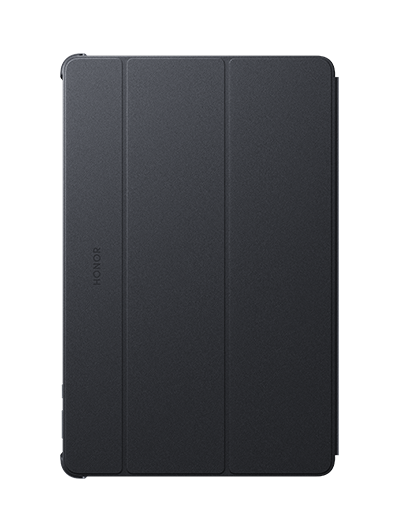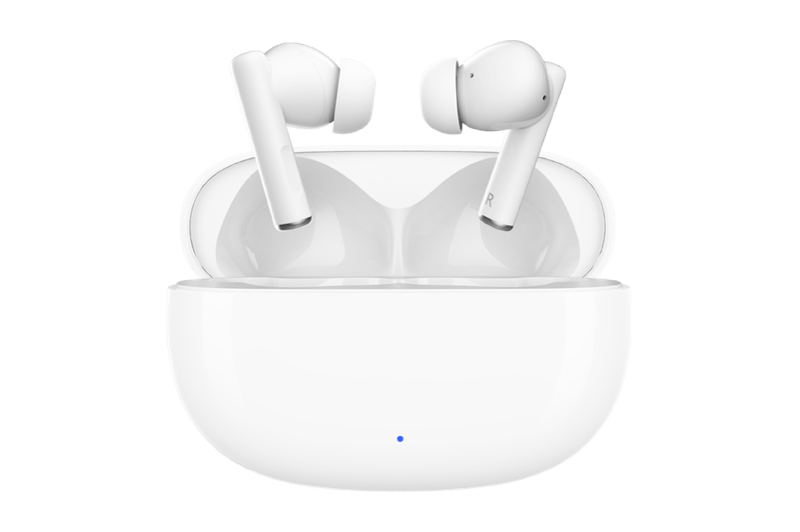
Policies and Reports
ESG Report

ESG Policy
Honor Statement
on Responsible Mineral
Supply
Chain Due Diligence Management
Learn More

Honor Statement on Responsible Mineral Supply Chain Due Diligence Management
As a world's leading of intelligent terminal provider, Honor adheres to the concept of sustainable development and implements ethical procurement , promotes the industrial chains to fulfill Corporate social responsibility.
Honor is committed to the responsible procurement of mineral raw materials Tin, Tantalum, Tungsten, Gold (3TGs) and Cobalt,etc. used in our products, we require our suppliers to conduct source tracing and responsible mineral due diligence for mineral products used in their purchased products, to ensure its source is in compliance with the Organization for Economic Co-operation and Development (OECD) Due Diligence Guidelines for Mineral Supply Chains in Conflict-Affected and High-Risk Areas or an equivalent and recognized due diligence framework, and share due diligence information with customers to ensure consistency with supply chain policy and Guidance requirements and progressively improve supply chain transparency and supply chain governance capabilities.
Supplier Social
Responsibility Code of Conduct
Learn More

Supplier Social Responsibility Code of Conduct
As the world's leading of intelligent terminal provider, Honor adheres to the concept of sustainable development, and are committed to building a global iconic technology brand that builds all-scenario, omni-channel, and service for all people, and provides innovative intelligent devices to global consumers, to create a new world of wisdom that belongs to everyone.
In order to promote the sustainable development of the industrial chain, Honor has formulated the Supplier Social Responsibility Code of Conduct (hereinafter referred to as "this Code") according to customer requirements and the industry's excellent practices. The content of this code includes labor rights, health and safety, environmental protection, business ethics and management system applicable to suppliers and sub-suppliers who provide products and/or services to Honor Terminal Co., Ltd. and/or its subsidiaries and affiliates worldwide (collectively, "Honor").
Honor requires suppliers to conduct their business in accordance with the principles and requirements in this Code (where applicable) and in full compliance with all applicable laws and regulations. Honor reserves the right to audit at the supplier's site to assess the supplier's compliance with this Code. Any violation of this Code may jeopardize the business relationship between the supplier and Honor, and in the most serious cases, can lead to the termination of the business relationship between the two parties.
Honor reserves the right to interpret this Code.
1. Laborers
1.1 Freely Chosen Employment
Suppliers shall ensure that all employees are employed on a voluntary basis.
• Suppliers shall not employ any form of slavery (including modern slave labor), forced labor, bonded labor, human beings trafficked or prison labor.
• Suppliers shall be no unreasonable restrictions on workers’ freedom of movement in the facility in addition to unreasonable restrictions on entering or exiting company provided facilities including, if applicable, workers’ dormitories or living quarters.
• All workers must be provided with a written employment agreement in their native language that contains a description of terms and conditions of employment. Foreign migrant workers must receive the employment agreement prior to the worker departing from his or her country of origin and there shall be no substitution or change(s) allowed in the employment agreement upon arrival in the receiving country unless these changes are made to meet local law and provide equal or better terms.
• All workers shall be free to leave work at any time or terminate their employment without penalty if reasonable notice is given as per worker’s contract.
• Suppliers, agents, and sub-agents’ may not hold or otherwise destroy, conceal, or confiscate identity or immigration documents, such as government-issued identification, passports, or work permits. Suppliers can only hold documentation if such holdings are required by law. In this case, at no time should workers be denied access to their documents.
• Workers shall not be required to pay suppliers’ agents or sub-agents’ recruitment fees or other related fees for their employment. If any such fees are found to have been paid by workers, such fees shall be repaid to the worker from suppliers, agents, and sub-agents.
1.2 Child and Young Workers
Child labor is not to be used in any stage of supplier’ s manufacturing.
• The term “child” refers to any person under the age of 15, or under the age for completing compulsory education, or under the minimum age for employment in the country, whichever is greatest.
• Suppliers shall implement an appropriate mechanism to verify the age of workers.
• Suppliers shall support the use of legitimate workplace learning programs, which comply with all laws and regulations. Workers under the age of 18 (Young Workers) shall not perform work that is likely to jeopardize their health or safety, including night shifts and overtime. Suppliers shall ensure proper management of student workers through proper maintenance of student records, rigorous due diligence of educational partners, and protection of students’ rights in accordance with applicable laws and regulations. Suppliers shall provide appropriate support and training to all student workers. In the absence of local law, the wage rate for student workers, interns, and apprentices shall be at least the same wage rate as other entry-level workers performing equal or similar tasks.
• If child labor is identified, suppliers shall provide assistance/remediation.
1.3 Working Hours
Working hours are not to exceed the maximum set by local law. Further, a workweek should not be more than 60 hours per week, including overtime, except in emergency or unusual situations. All overtime must be voluntary. Workers shall be allowed at least one day off every seven days.
1.4 Wages and Benefits
Compensation paid by Suppliers to workers shall comply with all applicable wage laws,
• In compliance with local laws, workers shall be compensated for overtime at pay rates greater than regular hourly rates.
• Deductions from wages as a disciplinary measure shall not be permitted.
• For each pay period, workers shall be provided with a timely and understandable wage statement that includes sufficient information to verify accurate compensation for work performed.
• All use of temporary, dispatch and outsourced labor will be within the limits of the local law.
1.5 Humane Treatment
Suppliers shall be treated well to workers, and there is to be no harsh or inhumane treatment including violence, gender-based violence, sexual harassment, sexual abuse, corporal punishment, mental or physical coercion, bullying, public shaming, or verbal abuse of workers; nor is there to be the threat of any such treatment. Disciplinary policies and procedures in support of these requirements shall be clearly defined and communicated to workers by suppliers.
1.6 Non-discrimination
Suppliers shall not engage in discrimination or harassment based on race, color, age, gender, sexual orientation, gender identity and expression, ethnicity or national origin, disability, pregnancy, religion, political affiliation, union membership, covered veteran status, protected genetic information or marital status in hiring and employment practices such as wages, promotions, rewards, and access to training. Workers shall be provided with reasonable accommodation for religious practices. In addition, workers or potential workers should not be subjected to medical tests by suppliers, including pregnancy or virginity tests, or physical exams that could be used in a discriminatory way.
1.7 Freedom of Association
In conformance with local law, suppliers shall respect the right of all workers to form and join trade unions of their own choosing, to bargain collectively, and to engage in peaceful assembly as well as respect the right of workers to refrain from such activities. Suppliers shall provide appropriate channels for employees and/or their representatives to express their views and concerns. Suppliers shall promptly respond to the voices and matters of employee feedback
2. Health and Safety
2.1 Occupational Safety
Suppliers shall ensure the occupational safety of employees and provide employees with a safe workplace,
• Worker potential for exposure to health and safety hazards are to be identified and assessed, mitigated using the Hierarchy of Controls, which includes eliminating the hazard, substituting processes or materials, controlling through proper design, implementing engineering and administrative controls, preventative maintenance and safe work procedures (including lockout/tagout), and the principles of providing ongoing occupational health and safety training to reduce the impact of health and safety hazards on employees.
• Workers are to be provided with appropriate, well-maintained, personal protective equipment, and relevant training by suppliers if hazards cannot be adequately controlled by these means.
• Supplies shall be taken to remove pregnant women and nursing mothers from working conditions with high hazards, remove or reduce any workplace health and safety risks to pregnant women and nursing mothers, and provide reasonable accommodations for nursing mothers.
2.2 Emergency Preparedness
Suppliers shall identify and assess Potential emergency situations and events, and their impact minimized by implementing emergency plans and response procedures including emergency reporting, employee notification and evacuation procedures, worker training, and drills. Emergency drills must be executed at least annually or as required by local law, whichever is more stringent.
2.3 Occupational Injury and Illness
Suppliers shall have procedures and systems in place to prevent, manage, track and report occupational injury and illness, including provisions to encourage worker reporting, classify and record injury and illness cases, provide necessary medical treatment, investigate cases and implement corrective actions to eliminate their causes, and facilitate the return of workers to work.
2.4 Industrial Hygiene
Suppliers shall provide employees with a healthy and hygienic workplace, including identify, assess and control chemical, biological and physical hazards to workers. If any potential hazards were identified, suppliers shall look for opportunities to eliminate and/or reduce the potential hazards. If elimination or reduction of the hazards is not feasible, potential hazards are to be controlled through proper design, engineering, and administrative controls. When hazards cannot be adequately controlled by such means, workers are to be provided with and use appropriate, well-maintained, personal protective equipment free of charge. Protective programs shall be ongoing and provide relevant training with these hazards.
2.5 Physically Demanding Work
Suppliers shall identify, evaluate and control the impact of workers exposure to the hazards of physically demanding tasks, including manual material handling and heavy or repetitive lifting, prolonged standing, and highly repetitive or forceful assembly tasks.
2.6 Machine Safeguarding
Production and other machinery shall be evaluated for safety hazards by suppliers. Physical guards, interlocks, and barriers are to be provided and properly maintained where machinery presents an injury hazard to workers.
2.7 Sanitation, Food, and Housing
Suppliers shall provide with ready access to workers clean toilet facilities, potable water and sanitary food preparation, storage, and eating facilities. Workers should be provided with dormitories of reasonable space and area, and the site should be maintained to be clean and safe, with appropriate emergency egress, hot water for bathing and showering, adequate lighting and heat and ventilation, individually secured cabinets for personal and valuables storage.
2.8 Health and Safety Communication
Suppliers shall inform workers of occupational safety and health hazards that their jobs may face, and provide workers with appropriate workplace health and safety information and training in the language of the worker or in a language the worker can understand for all identified workplace hazards that workers are exposed to, including but not limited to mechanical, electrical, chemical, fire, and physical hazards. Health and safety related information shall be clearly posted in the facility or placed in a location identifiable and accessible by workers. Suppliers shall encourage workers to raise any health and safety concerns and resolve and respond promptly without retaliation.
3. Environment
3.1 Environmental Permits and Reporting
The suppliers shall obtain, maintain and update all necessary environmental permits (for example, emission monitoring), approval documents and registration certificates and comply with their operational and reporting requirements.
3.2 Pollution Prevention and Resource Reduction
• Suppliers shall minimize or eliminate emissions and discharges of pollutants and generation of waste are to be at the source or by practices such as adding pollution control equipment, modifying production, maintenance, and facility processes, or by other means.
• Suppliers shall use natural resources conservely, including water, fossil fuels, minerals, and virgin forest products.
• Suppliers shall use renewable energy and resources as much as possible, including the use of clean energy, renewable materials, recycled materials, etc.
3.3 Hazardous Substances
• Suppliers shall identify, label, and manage to ensure Chemicals, waste, and other materials posing a hazard to humans or the environment are safe handling, movement, storage, use, recycling or reuse, and disposal.
3.4 Solid Waste
Suppliers shall implement a systematic approach to identify, manage, reduce, and responsibly dispose of or recycle solid waste (non-hazardous). And Honor encourages suppliers to carry out cleaner production and achieve Zero Waste to Landfill.
3.5 Air Emissions
Air emissions of volatile organic chemicals, aerosols, corrosives, particulates, ozone depleting substances, and combustion by products generated from operations are to be characterized, suppliers shall classify, routinely monitored, controlled, and treated as required prior to discharge, and comply with the emission standards required by local regulations. Suppliers shall routinely monitor the health of their air emission control systems and ensure they are in good working order.
3.6 Materials Restrictions
Suppliers are to adhere to all applicable laws, regulations, and Honor requirements regarding the prohibition or restriction of specific substances in products and manufacturing, including labeling for recycling and disposal.
3.7 Water Management
Suppliers shall implement a water management program that documents, characterizes, and monitors water sources, use and discharge; seeks opportunities to conserve water; and controls channels of contamination. All wastewater is to be characterized, monitored, controlled, and treated as required prior to discharge or disposal. Suppliers shall conduct routine monitoring of the performance of its wastewater treatment and containment systems to ensure optimal performance and regulatory compliance. Honor encourages suppliers to divert rainwater and sewage, and collect and utilize rainwater.
3.8 Energy Consumption and Greenhouse Gas Emissions
Suppliers shall conduct regular greenhouse gas inventory and establish a corporate-wide greenhouse gas reduction goal, and take practical measures to save and replace energy, water and natural resources to reduce greenhouse gas emissions.
4. Ethics
4.1 Business Integrity
Suppliers shall uphold the highest standards of integrity in all business interactions. The suppliers are forbidden to have corruption and dishonest behaviors, and do "Six 'Nos'"(namely no correlation, no bribery, no shoddy, no cheating on workmanship and materials, no fraud, and no commercial fraud) and "One 'Do'"(do keep promises). For details, please refer to the Letter of Commitment on Honesty and Incorruptibility/Agreement on Honesty and Incorruptibility.
4.2 No improper transfer of benefits
Suppliers shall not promise, offer, authorize, give, or accept bribes or other means of obtaining undue or improper advantage. This prohibition covers promising, offering, authorizing, giving or accepting anything of value, either directly or indirectly through a third party, in order to obtain or retain business, direct business to any person, or otherwise gain an improper advantage. Monitoring, record keeping, and enforcement procedures shall be implemented to ensure compliance with anti-corruption laws.
4.3 Disclosure of Information
Suppliers shall disclose the information regarding suppliers’ labor, health and safety, environmental practices, business activities, structure, financial situation, and performance in accordance with applicable regulations and prevailing industry practices. Falsification of records or misrepresentation of conditions or practices in the supply chain are unacceptable.
4.4 Intellectual Property
Suppliers shall safeguard the intellectual property rights are to be respected, transfer of technology and know-how is to be done in a manner that protects intellectual property rights, and customer and supplier information.
4.5 Fair Business, Advertising and Competition
Suppliers shall uphold the standards of fair business, advertising, and competition.
4.6 Protection of Identity and Non-Retaliation
Programs that ensure the confidentiality, anonymity, and protection of supplier and employee whistleblowers are to be maintained by suppliers, unless prohibited by law. Suppliers should have a communicated process for their personnel to be able to raise any concerns without fear of retaliation.
4.7 Responsible Sourcing of Minerals
Suppliers shall adopt a policy and exercise due diligence on the source and chain of custody of the tantalum, tin, tungsten, and gold in the products they manufacture to reasonably assure that they are sourced in a way consistent with the Organisation for Economic Co-operation and Development (OECD) Guidance for Responsible Supply Chains of Minerals from Conflict Affected and High-Risk Areas or an equivalent and recognized due diligence framework.
4.8 Privacy
Suppliers are to commit to protecting the reasonable privacy expectations of personal information of everyone they do business with, including suppliers, customers, consumers, and employees. Suppliers are to comply with privacy and information security laws and regulatory requirements when personal information is collected, stored, processed, transmitted, and shared.
5. Management Systems
Suppliers shall adopt or establish a management system with a scope that is related to the content of this Code.
5.1 Company Commitment
Suppliers shall commit to social and environmental compliance and continual improvement. Suppliers are encouraged to publish social and environmental responsibility policy statements and annual social and environmental reports in local languages.
5.2 Management Accountability and Responsibility
Suppliers clearly identifies senior executive and company representative(s) responsible for ensuring implementation of the management systems and associated programs. Senior management reviews the status of the management systems on a regular basis.
5.3 Legal and Customer Requirements
Suppliers shall identify, monitor and understand applicable laws, regulations and customer requirements (including the requirements of this Code).
5.4 Risk Assessment and Risk Management
Suppliers shall identify a process to the legal compliance, environmental, health and safety and labor practice and ethics risks associated with operations, and determination of the relative significance for each risk and implementation of appropriate procedural and physical controls to control the identified risks and ensure regulatory compliance.
5.5 Improvement Objectives
Suppliers shall write performance objectives, targets and implementation plans to improve the suppliers’ social, environmental, and health and safety performance, including a periodic assessment of suppliers’ performance in achieving those objectives.
5.6 Training
Suppliers shall program for training managers and workers to implement suppliers’ policies, procedures, and improvement objectives and to meet applicable legal and regulatory requirements.
5.7 Communication
Suppliers shall communicate the information clearly and accurately about suppliers’ policies, practices, expectations, and performance to workers, suppliers, and customers.
5.8 Worker Feedback, Participation and Grievance
Workers must be given a safe environment by suppliers to provide grievance and feedback without fear of reprisal or retaliation.
5.9 Audits and Assessments
Suppliers shall periodic self-evaluations to ensure conformity to legal and regulatory requirements, the content of the Code, and customer contractual requirements related to social and environmental responsibility
5.10 Corrective Action Process
Suppliers shall correction timely of deficiencies identified by internal or external assessments, inspections, investigations, and reviews.
5.11 Documentation and Records
Suppliers shall create and maintain the documents and records to ensure regulatory compliance and conformity to company requirements along with appropriate confidentiality to protect privacy.
5.12 Supplier Responsibility
Suppliers shall build a process to communicate Code requirements to their suppliers and to monitor compliance to the Code.












































































